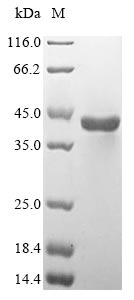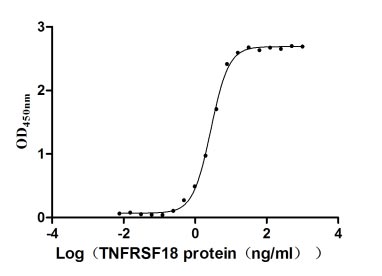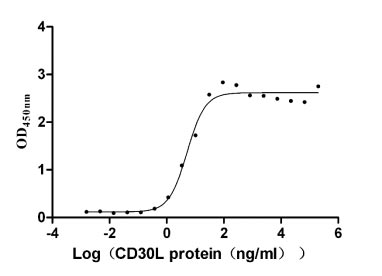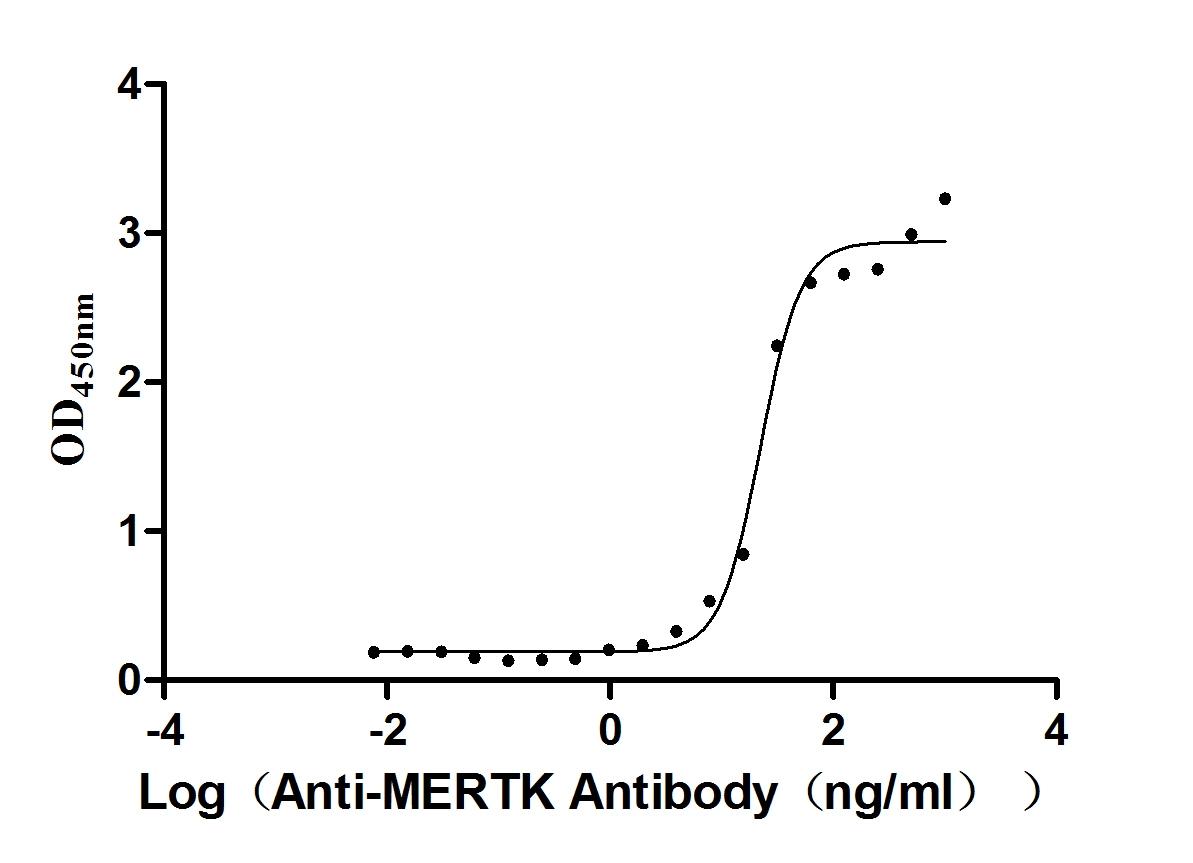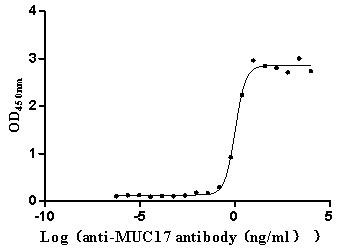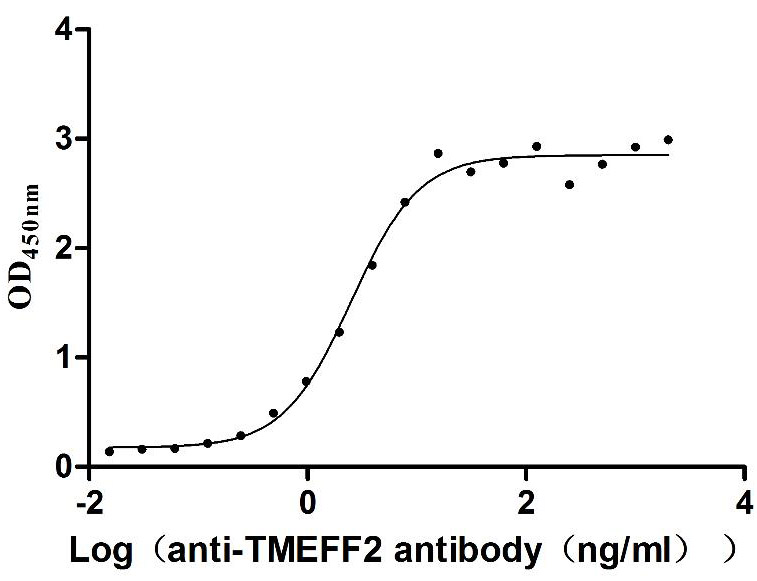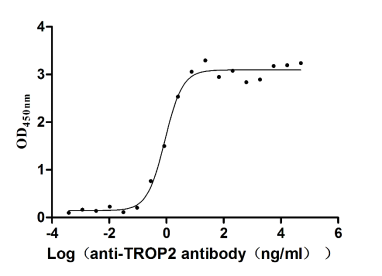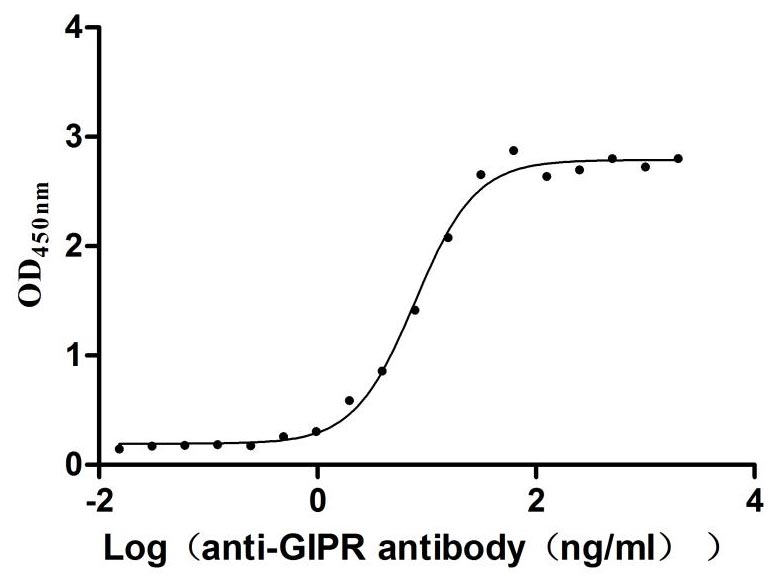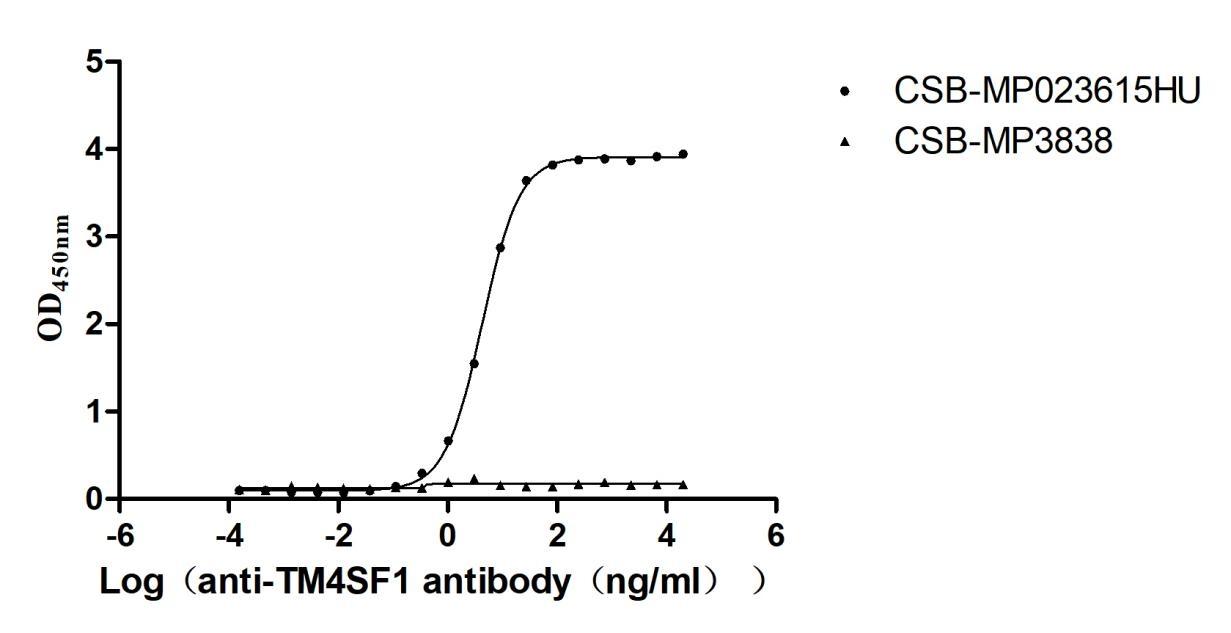Recombinant Human Aspartoacylase (ASPA)
In Stock-
中文名稱:Recombinant Human Aspartoacylase(ASPA)
-
貨號:CSB-MP002223HU
-
規格:¥3960
-
圖片:
-
其他:
產品詳情
-
純度:Greater than 85% as determined by SDS-PAGE.
-
基因名:
-
Uniprot No.:
-
別名:ACY 2; ACY-2; ACY2; ACY2_HUMAN; Aminoacylase 2; Aminoacylase-2; Aminoacylase2; ASP; ASPA; Aspartoacylase (aminoacylase 2; Canavan disease); Aspartoacylase (Canavan disease); Aspartoacylase; NUR 7; NUR7; OTTMUSP00000006437; RP23-213I10.1; Small lethargic
-
種屬:Homo sapiens (Human)
-
蛋白長度:Full Length
-
來源:Mammalian cell
-
分子量:39.7 kDa
-
表達區域:1-313aa
-
氨基酸序列MTSCHIAEEHIQKVAIFGGTHGNELTGVFLVKHWLENGAEIQRTGLEVKPFITNPRAVKKCTRYIDCDLNRIFDLENLGKKMSEDLPYEVRRAQEINHLFGPKDSEDSYDIIFDLHNTTSNMGCTLILEDSRNNFLIQMFHYIKTSLAPLPCYVYLIEHPSLKYATTRSIAKYPVGIEVGPQPQGVLRADILDQMRKMIKHALDFIHHFNEGKEFPPCAIEVYKIIEKVDYPRDENGEIAAIIHPNLQDQDWKPLHPGDPMFLTLDGKTIPLGGDCTVYPVFVNEAAYYEKKEAFAKTTKLTLNAKSIRCCLH
Note: The complete sequence may include tag sequence, target protein sequence, linker sequence and extra sequence that is translated with the protein sequence for the purpose(s) of secretion, stability, solubility, etc.
If the exact amino acid sequence of this recombinant protein is critical to your application, please explicitly request the full and complete sequence of this protein before ordering. -
蛋白標簽:N-terminal 10xHis-tagged and C-terminal Myc-tagged
-
產品提供形式:Liquid or Lyophilized powder
Note: We will preferentially ship the format that we have in stock, however, if you have any special requirement for the format, please remark your requirement when placing the order, we will prepare according to your demand. -
緩沖液:Tris-based buffer,50% glycerol
-
儲存條件:Store at -20°C/-80°C upon receipt, aliquoting is necessary for mutiple use. Avoid repeated freeze-thaw cycles.
-
保質期:The shelf life is related to many factors, storage state, buffer ingredients, storage temperature and the stability of the protein itself.
Generally, the shelf life of liquid form is 6 months at -20°C/-80°C. The shelf life of lyophilized form is 12 months at -20°C/-80°C. -
貨期:3-7 business days
-
注意事項:Repeated freezing and thawing is not recommended. Store working aliquots at 4°C for up to one week.
-
產品描述:
To make this Recombinant Human ASPA protein, the ASPA gene was isolated at first and cloned into an expression vector. CUSABIO has built a mature recombinant protein platform. This Recombinant Human ASPA protein was developed in the platform. It was expressed in Mammalian cell at the region of 1-313aa of the Human ASPA protein. N-terminal 10xHis tag and C-terminal Myc tag was fused with the expression vector for affinity and purification purposes. The purity is 85%+ determined by SDS-PAGE.
ASPA is an enzyme reported to be involved in the hydrolysis of N-acetyl-aspartate (NAA) into acetate and aspartate. A reduction in free acetate for lipid synthesis subsequent to loss of ASPA function is believed to contribute to disease etiology and could likely account for abnormalities in the lipid content of myelin. Early observations suggested an association of Canavan disease with oligodendrocytes due to loss of white matter as a result of the absence of functional ASPA. Thus, modification of aspartoacylase might be serve as a potential use in enzyme replacement therapy for the treatment of Canavan disease. Besides, extensive aspartoacylase expression in the rat central nervous system. Several findings provide strong support for a carboxypeptidase-type mechanism for the hydrolysis of the amide bond of the substrate, N-acetyl- l-aspartate. -
Datasheet & COA:Please contact us to get it.
相關產品
靶點詳情
-
功能:Catalyzes the deacetylation of N-acetylaspartic acid (NAA) to produce acetate and L-aspartate. NAA occurs in high concentration in brain and its hydrolysis NAA plays a significant part in the maintenance of intact white matter. In other tissues it act as a scavenger of NAA from body fluids.
-
基因功能參考文獻:
- report of 2 Egyptian sibling patients suspected of Canavan disease (CD); study revealed homozygosity for substitution T530C (Ile177Thr) in exon 4 of the ASPA gene in both sibs; substitution T530C (Ile177Thr) results in a novel missense mutation causing a CD phenotype with severe clinical characteristics PMID: 24036223
- Four ASPA missense mutations associated with Canavan disease are structurally characterized. PMID: 25003821
- Definitive evidence is presented to show that the recombinantly-expressed human aspartoacylase is not a glycoprotein. PMID: 24632142
- This is the first case report of ASPA mutation studies in Canavan disease from Indian subcontinent. PMID: 22878930
- a novel mutation Y88X within the aspartoacylase gene in a consanguineous family with an affected child diagnosed as Canavan disease. PMID: 22468686
- Human aspartoacylase gene expression was high not only in brain and kidney, but also in lung and liver. PMID: 22750302
- Gene ASPA (NM_000049) was undertaken to sequence for mutation analysis. PMID: 22219087
- We report on an Italian female patient with Canavan disease due to a missense mutation of the aspartoacylase gene and a 17p13.3 chromosomal microdeletion PMID: 22019069
- the ASPA gene was analysed in 22 unrelated non-Jewish patients with Canavan disease, and 24 different mutations were found PMID: 12638939
- Mild-onset presentation of Canavan's disease associated with novel G212A point mutation in aspartoacylase gene PMID: 16437572
- molecular weight of the purified enzyme is higher than predicted, suggesting the presence of post-translational modifications. Deglycosylation of aspartoacylase or mutation at glycosylation site causes decreased enzyme stability and catalytic activity PMID: 16669630
- a green fluorescent protein-human ASPA fusion protein larger than the permissible size for the nuclear pore complex was enzymatically active and showed mixed nuclear-cytoplasmic distribution. PMID: 16935940
- The finding that wild-type and Glu178Asp have the same K(m) but different k(cat) values confirms the idea that the carboxylate group contributes importantly to the enzymatic activity of aspartoacylase. PMID: 17027983
- the N-terminal domain of aspartoacylase adopts a protein fold similar to that of zinc-dependent hydrolases related to carboxypeptidases A PMID: 17194761
- These results show that aspartoacylase is a member of the caboxypeptidase A family and offer novel explanations for most loss-of-function aspartoacylase mutations associated with Canavan Disease. PMID: 17391648
- New structure of human aspartoacylase complexed with a catalytic intermediate analogue, N-phosphonomethyl- l-aspartate, supports a carboxypeptidase-type mechanism for hydrolysis of the amide bond of the substrate, N-acetyl- l-aspartate. PMID: 18293939
顯示更多
收起更多
-
相關疾病:Canavan disease (CAND)
-
亞細胞定位:Cytoplasm. Nucleus.
-
蛋白家族:AspA/AstE family, Aspartoacylase subfamily
-
組織特異性:Brain white matter, skeletal muscle, kidney, adrenal glands, lung and liver.
-
數據庫鏈接:
Most popular with customers
-
Recombinant Human Tumor necrosis factor receptor superfamily member 18 (TNFRSF18), partial (Active)
Express system: Mammalian cell
Species: Homo sapiens (Human)
-
Recombinant Human Tumor necrosis factor ligand superfamily member 8 (TNFSF8), partial (Active)
Express system: Mammalian cell
Species: Homo sapiens (Human)
-
Recombinant Mouse Tyrosine-protein kinase Mer (Mertk), partial (Active)
Express system: Mammalian cell
Species: Mus musculus (Mouse)
-
Recombinant Human Mucin-17 (MUC17), partial (Active)
Express system: Mammalian cell
Species: Homo sapiens (Human)
-
Recombinant Human Tomoregulin-2 (TMEFF2), partial (Active)
Express system: Mammalian cell
Species: Homo sapiens (Human)
-
Recombinant Human Tumor-associated calcium signal transducer 2 (TACSTD2), partial (Active)
Express system: Mammalian cell
Species: Homo sapiens (Human)
-
Recombinant Rat Gastric inhibitory polypeptide receptor (Gipr), partial (Active)
Express system: Mammalian cell
Species: Rattus norvegicus (Rat)
-
Recombinant Human Transmembrane 4 L6 family member 1(TM4SF1)-VLPs (Active)
Express system: Mammalian cell
Species: Homo sapiens (Human)

